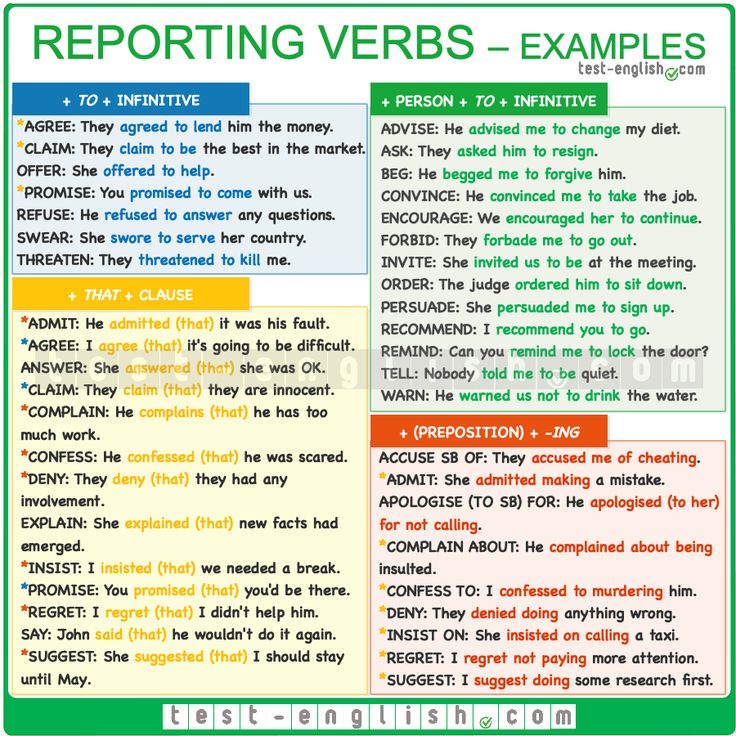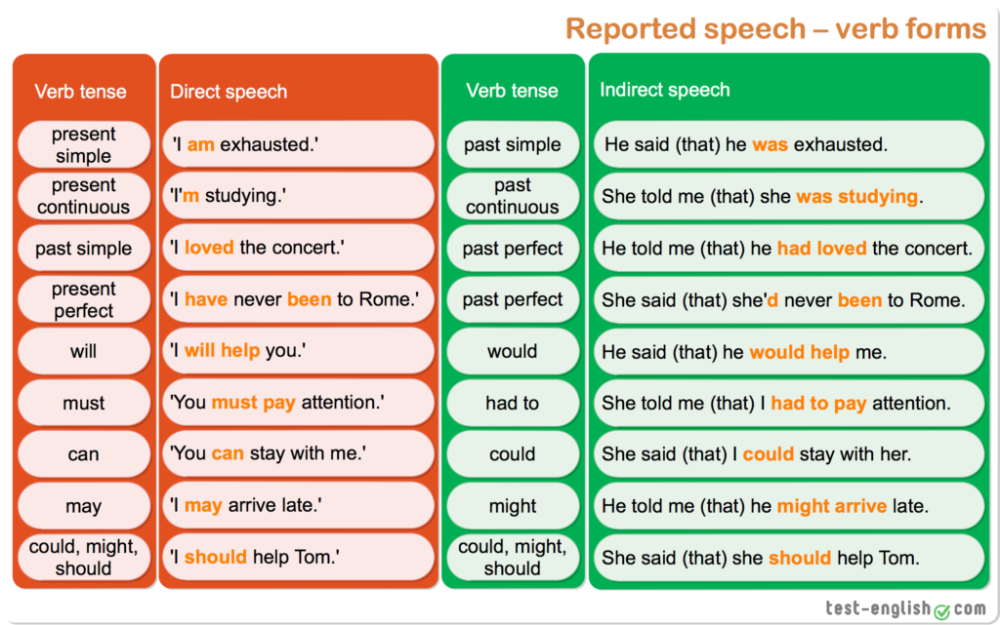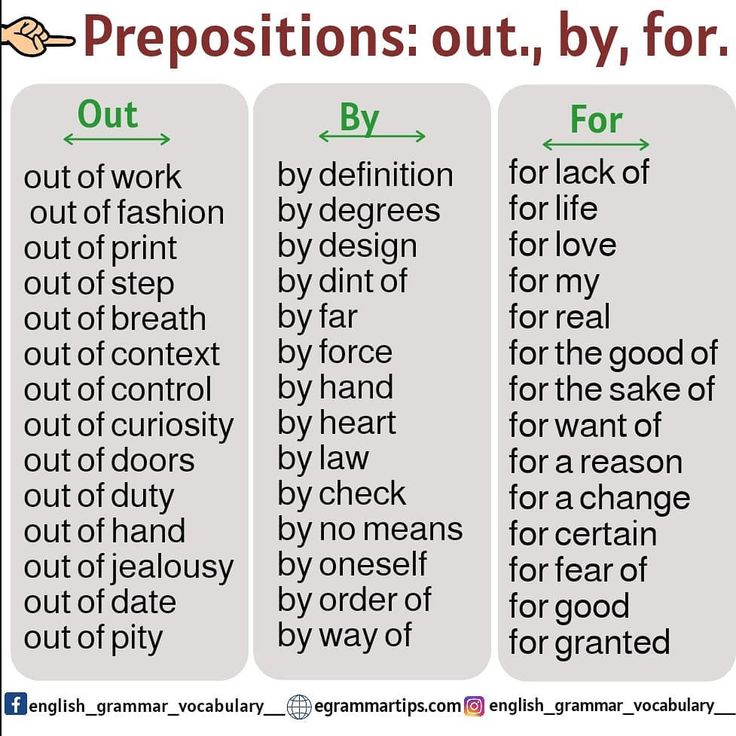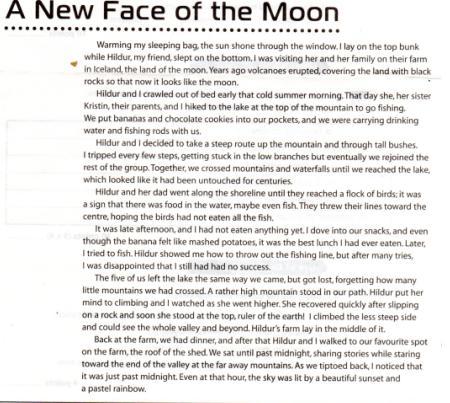If you plan to retire, you must figure out how to announce your retirement to your boss and co-workers. Letting your employer know that you are retiring in advance can give them ample time to find a replacement for your position. Here is how and when to announce your retirement.
You should give notice for retirement at least 3 to 6 months before the anticipated date of retirement. If you are a junior employer, you may be allowed to give at least a 30-day notice in advance. Research your company retirement policy to know how much notice you should give. Giving prior notice allows the company to recruit, hire, and train suitable candidates for your position.
If you are nearing retirement age, you should announce your retirement at least 3 to 6 months in advance. This may apply to senior positions at the managerial or departmental head level so that the company has sufficient time to interview and hire qualified candidates. However, some junior positions may require a shorter notice period of at least 30 days for the company to find suitable replacements.
To ensure there are no challenges when you retire, you should check the company policy to know how much notice you need to give before retirement. Companies may have different policies on when retiring employees are required to give notice, and you should observe these timelines when issuing a retirement announcement letter. Giving an advance notice shows courtesy towards your employer, and it helps maintain professional relationships with the company even after you leave. Also, issuing an advance notice may be a pre-condition to secure your retirement benefits.
If you have worked for your current employer for a long time, it is wise to maintain a good professional relationship with them even after retirement. Here are some reasons why you should give notice of intent to retire:
Here are some reasons why you should give notice of intent to retire:
If you have not figured out what you will do after retirement, giving prior notice gives you more time to rethink your decision and consider the options you have in retirement. Whether you want to move to a tax-friendly state, go for a vacation, start a business, or become a consultant, the notice period is a good time to figure out your post-retirement schedule.
Also, the notice period gives your employer enough time to find a suitable candidate to fill your position. You may be required to train the hired employee so that there is consistency in the tasks allocated to your position.
Some employers may require retiring employees to submit a retirement announcement letter so that they can get access to their employer-sponsored retirement plan savings. However, not all employers have this policy, and not submitting a notice for retirement does not mean you won’t access your benefits. Check your company policy to know if you are required to give notice.
Check your company policy to know if you are required to give notice.
Informing your employer that you are retiring helps build a professional relationship with the employer even after you retire. If you decide to retire abruptly without giving formal notice, it will be difficult to rebuild the relationship with your employer when you are no longer working in the company.
When announcing your retirement, it helps to know the right method to inform your employer and co-workers that you are retiring. Here are steps to follow when announcing your retirement:
You should familiarize yourself with the company policy on retirement notices so that you know when and how much time you have to issue a notice. The company policy will let you know when you should issue a notice about your impending retirement.
Once you have figured out the company policy on retirement notice, you should decide when to tell your employer about your impending retirement.
If you hold a senior position in the company, it is important to let your employer know you are retiring at least 3 to 6 months before your retirement. This gives the employer enough time to recruit a suitable replacement to fill your retirement.
If you are not on good terms with your boss, it might be best to wait until the last minute to issue a notice based on the company policy. For junior positions, you may be required to issue a notice three to four weeks before your actual retirement date.
You should book a private meeting with your supervisor or immediate boss to let them know that you will be retiring. Depending on your relationship with your employer, the meeting can be formal or less formal. Let your boss know when you plan to retire and ask how you can help with the transition.
If you are open to working after retirement, you can let your employer know that you will be available for any roles they might have. In some cases, the company can hire you as an advisor or consultant to benefit from your expertise and years of experience.
In some cases, the company can hire you as an advisor or consultant to benefit from your expertise and years of experience.
During the meeting, you ask your boss how to inform your co-workers that you are retiring. Some companies have a policy of making the announcement themselves by sending a memo or making an announcement during a company meeting. However, some employers may let retiring employees inform their colleagues first before the company makes an official announcement. By informing your colleagues you are retiring, you can get thoughtful retirement cards as you embark on new adventures.
After you have informed your boss about your impending retirement, you may be required to write a letter formally announcing your retirement. Make sure you hand in your letter in advance, at least before the official period provided for in the company policy. The letter should state your position in the company, your anticipated retirement date, and your intention to retire. The letter will be filed in your records, and it will be considered when sending the final paycheck.
The letter will be filed in your records, and it will be considered when sending the final paycheck.
We spend many years planning for our retirement with budgeting and saving. But when the time comes we haven’t given much thought about all the aspects, considerations and the best way of Announcing Your Early Retirement.
At times of frustration we have all fantasized. “I can’t wait to retire without notice and tell them where to shove this job”. But the reality can be a little more complicated.
In the not so distant past it was easier. Folks worked until they hit pension eligibility at 30 years of service. There was little surprise when a retirement shortly followed. Now that situation isn’t as common. There are now things to consider about making the big Early Retirement Announcement.
The 2 things you must first put some thought to:

In a world where employers have adopted a policy of terminating employees with little or no notice, it seems funny that we should have to give this any thought. If you are at a point in your career or position where you could care less about your employer then maybe you won’t. There’s no law that says you have to give notice. But depending on employment benefit processes, there may be business time frame requirements that come into play and you will have to wait to receive any retirement benefits you’ve earned.
Aside from that, the other problem with a no notice retirement is you are probably part of a team and you most likely like most of your team-mates. Your sudden departure will just mean they pay the price. Not the company or the management you may have a problem with.
Another consideration is that retiring early means there has most likely been a career full of good and dedicated work. For many that means they have a workplace legacy representing their career and don’t want to do anything to tarnish it.
For many that means they have a workplace legacy representing their career and don’t want to do anything to tarnish it.
When Announcing Your Early Retirement the amount of time you should give depends on the level of importance your job or position is.
The idea is to leave knowing you did what was necessary to facilitate a smooth transition.
Warning! Whenever giving a long retirement notice you may find your remaining work experience negatively affectedHaving the best of intentions and giving a long notice may cause regrets. Your employer and team might start treating you like a lame duck. You may be left out of critical planning and forward working projects that you care deeply about. If that is something that would bother you, then there is one thing you can try.
Your employer and team might start treating you like a lame duck. You may be left out of critical planning and forward working projects that you care deeply about. If that is something that would bother you, then there is one thing you can try.
Depending on the employer they may or may not accept this announcement strategy but it’s worth trying. Then you may be viewed as you always have been viewed until just before go-time. If your manager didn’t offer you a final “decision-by” date then be sure to set a drop dead “I am definitely leaving” announcement date of your own. Your manager will certainly be wondering what is going on as you approach the tentative retirement date you mentioned.
Finally, those retiring from a toxic work environment need to be very cautious about how much notice they give. It can be easy to allow emotional urges let things fly when you are getting close to your planned milestone. If things are bad, then it could get worse. I’ve heard stories where people were fired once they announced their retirement intentions. If you are in a toxic environment then don’t say or do anything that will jeopardize your chances of reaching your planned retirement date and goals. Sadly there is little to stop an employer from firing you. If it’s done in a way that screws you out of retirement benefits then you will be spending the first part of your retirement searching for a good attorney.
Announcing Your Early Retirement – The Best Way to let Them KnowSchedule an in-person private meeting with your manager. When I retired the first time my manager was someone in a different State so I scheduled a conference call. This can be a formal or informal meeting. It Depends on how high up the corporate food chain you are and/or your relationship with your manager. I believe for most people this will be an informal conversational discussion. You should figure out what to expect based on your unique employment situation and then act accordingly.
It Depends on how high up the corporate food chain you are and/or your relationship with your manager. I believe for most people this will be an informal conversational discussion. You should figure out what to expect based on your unique employment situation and then act accordingly.
For my first early retirement I was a Lead Engineer and had an informal conference call. I gave a one month notice. This allowed enough time for work-transition and their planning.
You should always let your manager know first about your retirement plans. If you start telling your co-workers it will get around. Once you schedule this meeting with your manager it may be awkward if they have already heard through the office grapevine of your plans to retire.
At some point management will most likely release an official retirement announcement. You should personally tell your close co-workers or team yourself before that happens.
I wanted my team to all hear it at the same time. I made m retirement announcement during one of our staff meetings very shortly after my meeting with my boss.
I made m retirement announcement during one of our staff meetings very shortly after my meeting with my boss.
You most likely won’t be able to quickly notify everyone in your work circles and word will spread quickly. Therefore you may want to draft personalized retirement announcement emails in advance. That way you can immediately send it to your selected group of professional colleagues and co-workers.
Announcing Your Early Retirement – Write a Formal Retirement LetterMost company Human Resource (HR) departments will need a formal letter of your intentions to retire. This is so they can put it in your file. Make sure you include specific dates so that they can figure out any unpaid sick pay or vacation days you have coming to you. Also key is including your contact and mailing information. Especially if you plan on moving once retired. This way you will be sure to get your W2s, any checks, and other important career and work related documents that you will need after retirement.
With my first retirement there was still a diminished pension benefit left. I just had to go through the company process to request that. My wife’s company had her use their standard resignation form. These were very formal processes and had the necessary contact, address and date of retirement info. It took the place of writing a formal retirement letter.
Your company may have a similar process in place. Check with your manager, union, or HR group. If you need to write up and send something formal it can be as simple as this sample retirement letter:
Notification of Intent to RetireYour Name
Address (Home Address for any post-retirement mail or last payroll check)
City, State, Zip Code
Phone Number
Email
Date (Date of the letter)
Name
Title
Organization
Employment Address
City, State, Zip Code
Dear Mr. /Ms. Last Name:
/Ms. Last Name:
I am writing this letter to tell you that I will be retiring effective (the date [month/day/year]).
It has been a pleasure working for (your company name). I appreciate all the support that was provided to me during my time here as part of (your company name).
Although I am happily looking forward to my retirement, I will genuinely miss being part of our team and the company.
If there is anything that I may be of any assistance either before my retirement or after, please do not hesitate to let me know. I am happy to give any help that I can to ensure a smooth transition.
Sincerely,
Your Name (Signature if writing a hard copy letter)
(Note: This sample retirement letter is for guidance and informational purposes only. Please edit any retirement letters or other correspondence to meet or fit your company’s requirements and your own personal situation. Never vent or say anything negative. Keeping your letter positive about your retirement intentions may become useful if needed in a legal situation. )
)
For some, officially announcing or sending a letter of intent to retire will trigger a request to schedule a time for one last chance to pick your brain before leaving. There’s a right way and wrong way to handle your retirement exit interview, so be prepared.
The flip side to that is you trigger your boss asking you to delay your retirement. That too requires considerations before accepting an offer to stay longer.
Once the Cat is out of the bag prepare for the emotional roller coaster thrill ride.
If we are lucky we get to experience voluntary retirement at least once in our lives. It does come with emotions and feelings that swing in different directions.
First you need to be ready for people treating you differently. You may be excluded from things and you should not expect to be asked to help find your perfect replacement. Your company may wait until after you leave to look for your replacement. If you are leaving a job you cared dearly about you may feel a bit let down by this. Get over it.
If you are leaving a job you cared dearly about you may feel a bit let down by this. Get over it.
If a list of candidates is floating around and you have an opinion on who you think is best, KEEP IT TO YOURSELF unless asked.
Concentrate on what you are retiring to. Make yourself available to help out and if asked to aid then do so. If your replacement is brought on before you leave, don’t try to offer a bunch of suggestions if you are not asked for any. Keep things to the detail level. Let them do what they need to do.
Prepare yourself to answer a lot of non-business questionsI certainly was asked these questions many times and I would answer that it’s never early enough to retire. I explained my plans where I am open to starting an encore career at some time down the road and I believe retiring early and often is the best way to live. The world is full of opportunity. Those answers usually worked.
I explained my plans where I am open to starting an encore career at some time down the road and I believe retiring early and often is the best way to live. The world is full of opportunity. Those answers usually worked.
Finally, don’t be surprised when your last day comes and you feel a little emotional tug.
You are walking away from what was a big part of your life. You shouldn’t think too much about how others react. Most people may try to avoid you because saying goodbye is difficult.
Make sure you talk to those you really want to talk to or personally thank the day before or early on your last day.
When the time comes for your last walk out of the building with your small box of personal items don’t be surprised if nobody walks out with you for a last chat.
Both of my retirements ended with me turning in my laptop and badge at 4PM and going to my desk to grab my effects. A few folks I passed gave me a little wave or nod and I walked out to my car by myself. Perhaps that is as it should be.
Perhaps that is as it should be.
Time to refocus on you, your plans, and your future. You did everything right to get to this place of financial independence and Announcing Your Early Retirement. Now it’s time for the prize. The rest of YOUR LIFE on YOUR TERMS.
Voluntary dismissal (in other words, at the initiative of the employee) is one of the most common grounds for terminating an employment contract. The initiative to terminate the employment relationship comes from the employee and does not imply its approval by the employer, because you cannot force a person to work against his will. However, there are certain rules that must be followed when leaving at will.
The procedure for dismissal at will involves, first of all, the employee writing a letter of resignation. The application indicates the date of dismissal and its grounds (“of one's own free will”), it must be signed by the employee indicating the date of compilation.
The application indicates the date of dismissal and its grounds (“of one's own free will”), it must be signed by the employee indicating the date of compilation.
It is not necessary to indicate in application the reason for dismissal of one's own free will . However, if circumstances require you to quit without working off, then the reason must be indicated, in addition, personnel officers may be asked to document it. In other cases, the phrase "I ask you to dismiss me of your own free will on such and such a date" is sufficient.
After the application for dismissal is transferred to the personnel department, a dismissal order is drawn up . Usually, a unified form of such an order is used (form No. T-8), approved by the Decree of the State Statistics Committee of 01/05/2004 No. 1. In the order, it is necessary to make a reference to paragraph 3 of part 1 of article 77 of the Labor Code of the Russian Federation, as well as provide the details of the employee's application. The employee must be familiarized with the order of dismissal against signature. If the order cannot be brought to the attention of the dismissed person (he is absent or refused to familiarize himself with the order), then a corresponding entry is made on the document.
The employee must be familiarized with the order of dismissal against signature. If the order cannot be brought to the attention of the dismissed person (he is absent or refused to familiarize himself with the order), then a corresponding entry is made on the document.
According to the general rule enshrined in the Labor Code, the employee must notify the employer of the upcoming dismissal no later than two weeks. This period begins on the day after the employer receives the letter of resignation.
However, the so-called two-week work period may be reduced by agreement between the employee and the employer. In addition, the law does not oblige the employee to be at the workplace during the period of notice of dismissal. He can go on vacation, sick leave, etc., while terms of dismissal will not change.
There are statutory exceptions to the general rule of two weeks' notice. So, upon dismissal during the trial period, the notice period for dismissal is three days, and upon dismissal of the head of the organization - one month.
Calculation upon dismissal of one's own will , as well as for other reasons, must be made on the day of dismissal, that is, on the last day of work. Calculation upon dismissal involves the payment of all amounts due to the employee: wages, compensation for unused vacations, payments provided for by the collective and labor agreements. If the dismissed employee used the vacation in advance, the paid vacation pay is recalculated, the corresponding amount is deducted from the salary in the final calculation.
If the employee was absent from work on the day of dismissal and could not receive the payment, he has the right to apply for it at any other time. The amount due to him must be paid no later than the next day after the appeal.
The law does not prohibit quitting at will during vacation . Such a ban is provided only for dismissal at the initiative of the employer. The employee has the right to write a letter of resignation while on vacation, or to attribute the date of the proposed dismissal to the vacation period.
The employee has the right to write a letter of resignation while on vacation, or to attribute the date of the proposed dismissal to the vacation period.
If an employee wants to apply for resignation while on vacation, he does not need to be recalled from vacation
Also, an employee may resign voluntarily after using the leave. Note that the provision of leave with subsequent dismissal is a right, not an obligation of the employer. If such leave is granted, the day of dismissal shall be considered the last day of the leave. However, for the purposes of settlements with the employee, the last day of work in this case is the day preceding the start of the vacation. On this day, you should issue a work book to the employee or provide information about work activity in the STD-R form, as well as make all necessary payments. This is a kind of exception to the general rule above, confirmed by jurisprudence.
It is possible to quit voluntarily during sick leave . The law prohibits such dismissal only at the initiative of the employer.
The law prohibits such dismissal only at the initiative of the employer.
An employee has the right to apply for dismissal during a period of temporary disability. A situation may also arise when the previously agreed date of dismissal falls on the sick leave period. In this case, the employer will issue the dismissal on the day specified in the application for dismissal, provided that the employee has not withdrawn this application. The employer is not entitled to independently change the date of dismissal.
On the last day of work, even if it falls on sick leave, the employer makes the final payment, issues a dismissal order, in which he makes a note about the absence of the employee and the impossibility to familiarize him with the order. The employee will come for the work book after recovery or, with his consent, it will be sent to him by mail. All amounts due to the employee will be paid to him no later than the next day after the presentation of the relevant request by him. However, the temporary disability benefit will be assigned by the employer within 10 days from the date of granting the sick leave and paid on the next day after the appointment, set for the payment of wages in the organization.
However, the temporary disability benefit will be assigned by the employer within 10 days from the date of granting the sick leave and paid on the next day after the appointment, set for the payment of wages in the organization.
We tell you how the dismissal process actually works, what rights the employer has and what you can demand from an employee so as not to get problems from the labor inspectorate.
The basic rules for terminating an employment contract are spelled out in Ch. 13 of the Labor Code of the Russian Federation. The general procedure for formalizing the termination of the contract is regulated by Art. 84.1 of the Labor Code of the Russian Federation. To dismiss an employee, you need to issue an order, you can use the template.
The date of termination of the contract is the last day of work, including in a situation where the employee was absent, but his job was retained.
On the day of dismissal, you must give the employee a work book, and if this is not possible, send him a notification about the need to receive a document. You also need to submit a certificate of income and a certificate of insurance experience, calculate the employee and, if he wishes, give him other documents, for example, information about work activity.
You also need to submit a certificate of income and a certificate of insurance experience, calculate the employee and, if he wishes, give him other documents, for example, information about work activity.
The date and reason for dismissal are entered in the work book, copying the wording from the Labor Code of the Russian Federation and making a reference to a specific paragraph or part of the article.
These rules apply to all reasons for termination.
All possible grounds for terminating an employment contract are spelled out in Art. 77 of the Labor Code of the Russian Federation. Among others, there is voluntary dismissal - it is regulated by a separate article. 80 of the Labor Code of the Russian Federation. The period of 2 weeks is indicated in this article.
But it is not correct to say that this is a detention. The code says that an employee can terminate the contract of his own free will, but for this you need to notify the employer in writing at least 2 weeks in advance. The beginning of the term will be considered the next day after the submission of the application.
The beginning of the term will be considered the next day after the submission of the application.
This does not mean that a person must necessarily work out the specified period. He can take a vacation, time off or sick leave for this time - the deadline will run, the workplace with payment should be saved, but in fact there is no work. If the vacation lasts more than two weeks, then the last day of the vacation will be considered the last day of work. If an employee is on sick leave, but there is an application for dismissal, then on the 14th day of the sick leave he must be fired.
10 examples of unusual dismissals and court decisions
On any of the 14 days before the termination, the employee can withdraw his application. Then it is impossible to dismiss him of his own free will without a second application.
If an employee terminates an employment contract voluntarily, there are three reasons why you can not wait for the end of the two-week period. They are listed in the same article. 80 of the Labor Code of the Russian Federation.
They are listed in the same article. 80 of the Labor Code of the Russian Federation.
If the employer does not mind, you can issue a termination at the request of the employee even earlier. Regulates the process of agreement Art. 78 of the Labor Code of the Russian Federation.
There is no unified form of the agreement of the parties - the employee and the employer draw it up in a free form (sample agreement). But it is understood that the agreement means a peaceful order, that is, the parties agree on all the nuances of termination, including the terms of dismissal, and the amount of compensation payments.
The Labor Code allows not giving the employer two weeks' notice if the employee needs to quit due to enrollment in an educational organization or in connection with retirement.
Para. 3 art. 80 of the Labor Code of the Russian Federation states that if the employer violates the norms of the Labor Code or the terms of the contract, then the employee has the right to quit of his own free will without a two-week warning.
A convenient service for calculating payroll, sick leave and vacation pay, sending reports via the Internet
There is a nuance. In Art. 142 of the Labor Code of the Russian Federation specifies the procedure for an employee in case of non-payment of wages - if the employer delays it for more than 15 days, then the employee may suspend work. If at the same time you submit an application for dismissal of your own free will, and the downtime period lasts just more than two weeks, then you will not actually have to work out this period, the contract will be terminated.
Art. 292 of the Labor Code of the Russian Federation states that an employee with an employment contract for a period of up to two months (fixed-term contract) is obliged to notify the employer of the desire to end the relationship at least 3 calendar days in advance.
292 of the Labor Code of the Russian Federation states that an employee with an employment contract for a period of up to two months (fixed-term contract) is obliged to notify the employer of the desire to end the relationship at least 3 calendar days in advance.
A fixed-term contract can be concluded not on a specific date, but on a condition - for example, while there is no employee who retains the job. For example, this is done when it is necessary to replace the functions of an employee during the maternity leave. The employee notifies the employer of the desire to quit 3 days in advance. If the employee returns, then the colleague replacing him does not need to work out anything - the employment contract is terminated on the same day.
Convenient tools for recording personnel events, generating orders and other documents
If the employment contract is concluded for seasonal work, the notice period is the same - 3 calendar days. They do it in writing. The process is regulated by Art. 296 of the Labor Code of the Russian Federation.
They do it in writing. The process is regulated by Art. 296 of the Labor Code of the Russian Federation.
According to Art. 71 of the Labor Code of the Russian Federation, if the employee has not yet passed the probationary period, he can terminate the labor at his own request. To do this, he submits an application to the employer, even without a reason for dismissal. This must be done 3 calendar days before the date of termination of the contract. The basis for terminating the relationship will be "termination of the employment contract at the initiative of the employee."
The employer can also terminate the contract. In this case, the employee must be warned about the unsatisfactory result of passing the probationary period. To do this, the employee is sent a notification indicating the reasons for non-passing, no later than 3 days before the date of termination of the contract. The employee has the right to appeal the termination in court, therefore, during the probationary period, it is necessary to monitor possible problems in labor functions and discipline and fix them using memoranda or acts.
The probationary period cannot last longer than three months, and for managers and their deputies of the organization or its separate divisions, branches and representative offices - no longer than six months.
If an employee does not want to wait two weeks, but writes a letter of resignation and simply stops going to work, then these actions are regarded as a gross violation of labor obligations, on the basis of Part 6 of Art. 81 of the Labor Code of the Russian Federation.
To terminate the employment contract, it is sufficient that the employee is absent from the workplace without a valid reason for more than four hours in a row. To prevent the employee from appealing your decision after the dismissal, you need to collect evidence or otherwise prove its absence, as well as send a letter to the employee demanding to explain why he did not come to work.
The problem is that if it comes to dismissal for absenteeism, the employee is unlikely to agree to such a development of events. And he will be able to prove that he was absent for a good reason - for example, due to an emergency in an apartment, a visit to a doctor, an urgent call to school. The employee may try to challenge the termination of the contract for absenteeism, including through the courts.
And he will be able to prove that he was absent for a good reason - for example, due to an emergency in an apartment, a visit to a doctor, an urgent call to school. The employee may try to challenge the termination of the contract for absenteeism, including through the courts.
As a result, the process will take longer than the 2 weeks specified in the law. Therefore, if an employee wants to leave of his own free will, but does not want to work, it is easier to let him go by agreement of the parties. Or if you are not ready to act peacefully, involve a labor law specialist to study the nuances of a particular situation.
